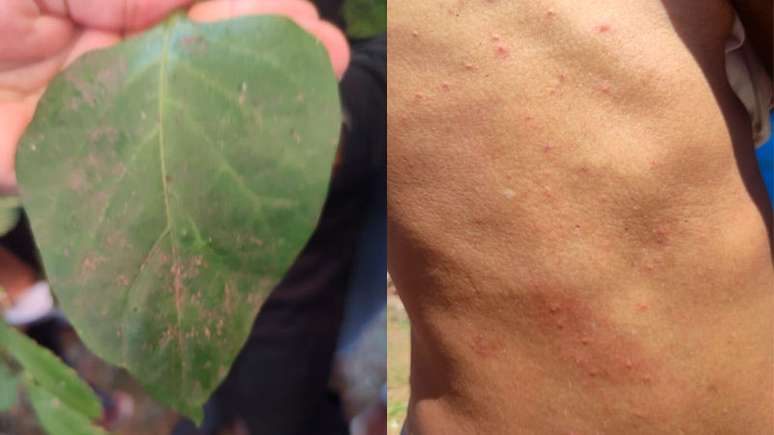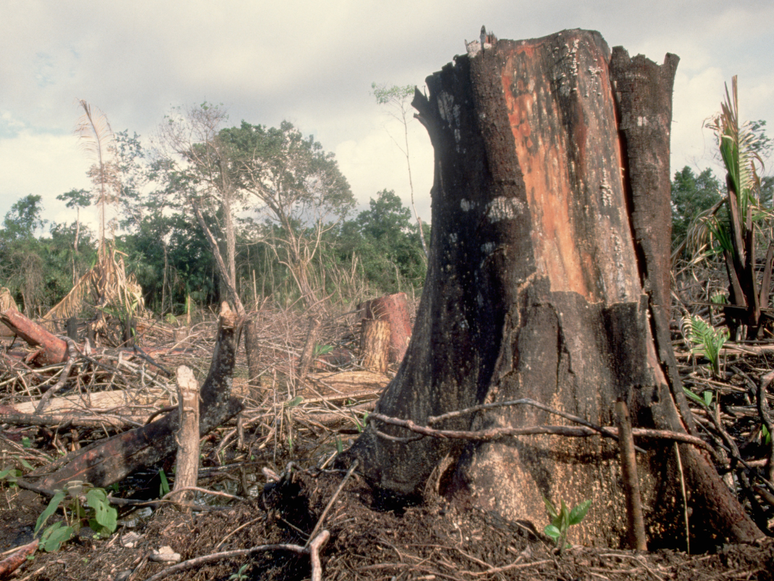Agro-industry expands wildly in a Pará municipality, harming traditional communities Written by: Fernando Assunção | Edition: Nataly Simões | Photo: reproduction
“They are poisoning us.” The intervention is by a resident of Cachoeira do Arari (PA), in the archipelago of Marajó, a city located almost 130 kilometers from the capital of Pará. It refers to the use of pesticides in the city’s rice plantations.
Rice cultivation has experienced unbridled expansion in the region over the last decade, driven by the establishment of the Quartiero family, owner of the Camil company, one of the largest food producers in the country. The family’s rice fields have expanded into the urban area of the municipality and today cover about 30% of the territory.
The resident, who declined to be identified for fear of retaliation, reports that a company plane flies over the city every day and sprays the vast area of the plantation. According to his report, the wind also carries the pesticides into the homes of the inhabitants of the region. As a result, the population developed respiratory diseases, inflammation and skin irritations, with further damage to the animals and small-scale agriculture developed in the residents’ backyards.
“There is no reason to fly over the whole city and also spray the children’s clothes and diapers that we scattered in the courtyards, it was only meant to be used to plant them. My son and I have already developed several diseases, such as rhinitis and sinusitis. all “It’s dawn to have an injection, an anti-allergy and it’s useless. This is a widespread problem in the municipality. The authorities have not yet paid attention to the seriousness of what these people are doing there,” he says.
The agro-industry accumulates problems in Pará
In August, the general ombudsman of Pará’s public defense office carried out a technical visit to the city and observed the various problems caused by the agro-industry. In addition to the health damage caused by pesticides, homelessness is also a reality due to the expansion of rice cultivation (name given to the agricultural cultivation of rice).
This is because, according to residents, there is a federal project to build affordable housing, but due to the growth of rice fields, the area that would remain for the construction would be less than a hectare of land. For this reason, about 600 families have occupied an area of rice paddies at the entrance to the city, demanding that the total area of 13,000 hectares be expropriated for the construction of houses.
The situation is also alarming with regard to the Arari river, an access route to the municipality and a source of supplies and livelihoods for the communities. To irrigate the plantation, the company has created a system to divert the river water which affects fishing, fish reproduction and the livelihood of most of the families in the municipality, as well as contamination due to the use of poisons.
There are reports of filling lakes and streams and devastation in the forest area, which undermines the agro-extractivism of species such as tucumã and bacuri and animal life. Ducks, among the typical birds of the Cachoeira do Arari forests and part of the famous traditional cuisine of the municipality, have almost disappeared, the complaint points out, after the uncontrolled deforestation by rice farmers.
Another situation of violation of the rights of the inhabitants of Cachoeira do Arari concerns the alleged taxation imposed on fishermen to enter the area of the Arari river, where the rice fields are located. Some fishermen claim that they are obliged to pay to fish and that the fee is calculated according to the amount of fish, sometimes paying R$3 for every kilo of fish. There have also been reports of fishermen being threatened by armed men in the rice paddies, who won’t allow their boats to sail on the river.
A report of the institutional visit was prepared and sent to the competent bodies. The Office of the Agricultural Defender of Castanhal has received the document and has already requested authorization for the judicial proceeding, which is taking place at the Single Court of Cachoeira do Arari. “The judge established that the Public Prosecutor’s Office must be summoned to respond to our request. Furthermore, we have already initiated an administrative procedure with various diligence and have appointed environmental and investigative bodies. We will also carry out an analysis of the territory, considering that is located in an area of about 13,000 hectares and that there are rules and regulations that limit the use of the land,” explained Castanhal’s public defender, Andréia Barreto.
“After this diligence, we will conclude what is the other way to act, since the judicial proceeding specifically deals with the action of possession, but the Guarantor will act on other fronts and will guarantee the right to housing and the protection of traditional communities in the surrounding area the conflict”, concludes the public defender.
‘The company leaves the poison only to the Municipality’
For the technical visit, the ombudsman’s delegation was received by the mayor of Cachoeira do Arari, Antônio Augusto Figueiredo (MDB), to deal with the request for housing and environmental crime. The city manager said that when he arrived in the municipality 13 years ago, the rice paddy project had been approved by the state government, but that, currently, the company leaves only “the poison” to the municipality.
The mayor also informed that he is negotiating with the federal government for the realization of a social housing project in the occupied area, based on the expropriation of the rice plantation. This area is also claimed by the Quartiero family, but the city manager said the land is public and the paperwork presented by the rice farmer is illegal.
For another resident interviewed by the report, however, the mayor does not take action in relation to the damage caused by the expansion of crops. “We are looking for the Municipality, the Minister of the Environment and they do not answer us, they do not interact with the posts on social networks that denounce the problem. The Municipality must take action”, he says.
A black soul he contacted Camil for the company’s position on the complaint. The report also contacted the Cachoeira do Arari City Hall to discuss the matter. Until the publication of this text there has been no response. If one of the parties manifests itself, the minutes will be updated.
Source: Terra
Rose James is a Gossipify movie and series reviewer known for her in-depth analysis and unique perspective on the latest releases. With a background in film studies, she provides engaging and informative reviews, and keeps readers up to date with industry trends and emerging talents.







